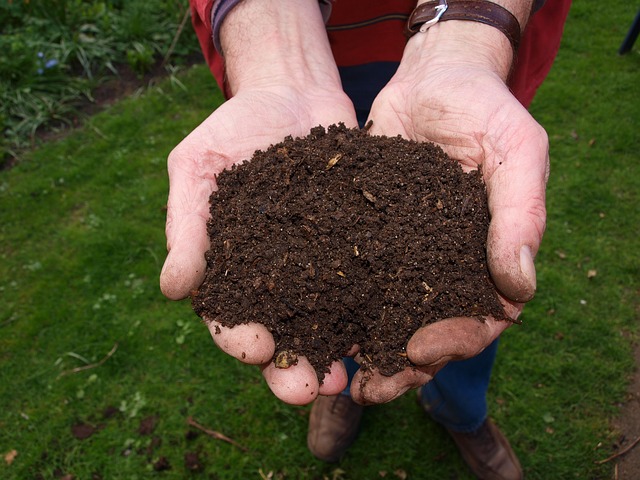
How To Make Compost For The Garden
I enjoy making compost, it’s a good feeling when you turn out the compost bin to find nutrient rich, organic humus that you can use on your garden, made from garden and organic household waste. In this article I am going to show you the best way how to make compost for the garden.
The one thing to remember is that the best garden compost needs to have a good mix of moist/nitrogen and dry/carbon materials.
It’s fascinating to me how the right mix of waste, along with ideal temperatures breaks down in a relatively short time, leaving you with “garden gold”.
In this article I am going to show you the best way how to make compost for the garden.
With the much-needed and overdue move away from using peat compost, we as gardeners have to find an alternative growing medium.
I often hear that the peat free compost that you can buy isn’t as good and the options are few.
In my local garden centre at the moment there is only one type of peat free compost available, amongst a choice of about two dozen types of peat compost.
If we are to help the planet to recover this is really not acceptable.
Cue the compost bin and making your own compost for the garden.
Read here for info on saving the peat bogs
How To Make Compost For The Garden
Compost is so easy to make, and what’s more it is free. Making the best compost is a very simple process and homemade garden compost is the best thing you can add to your garden.
Whether you use it in your beds and borders, for the lawn or in pots and containers, compost aids healthy plant growth.
Making organic garden compost helps the environment too as you are recycling garden and household waste. Therefore, less is going to landfill sites, where it doesn’t break down as easily or quickly.
Beneficial organisms in soil aerate the mix which in turn helps it to decompose.
I recommend using compost bins as apposed to having an open compost heap. Bins keep all the waste together and the material builds up heat quicker, therefore it decomposes quicker, usually in a matter of a few months. Open compost heaps can attract flies and vermin and are really quite unsightly.
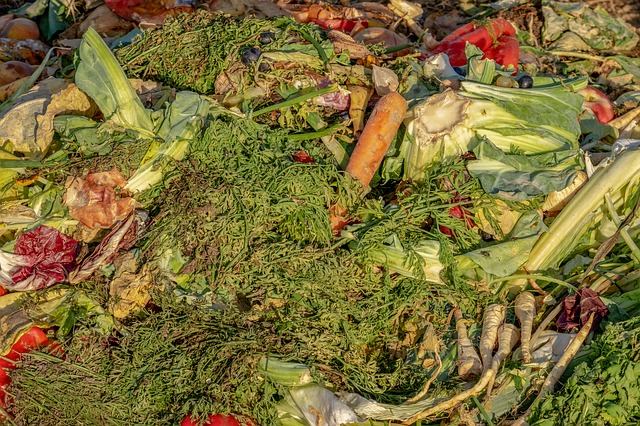
What can I put in Compost Bins?
Carbon Materials
Carbon is the dry waste which includes:
- Twigs
- Straw
- Dry leaves. A leaf blower makes collecting leaves easy and quick
- Vegetable peel
- Shredded paper
- Cardboard
- Egg shells
Carbon materials are what give your compost a dry, crumbly, airy texture.
Nitrogen Materials
Nitrogen is the moist, fresh waste which includes:
- Tea leaves
- Vegetable/fruit scraps
- Coffee grounds
- Chicken manure
- Green manure
- Grass clippings
- Plant waste
- Shrub prunings
Nitrogen material add protein matter which provides beneficial enzymes.
What Not to Put in the Compost
- Any diseased plant matter
- Too much wood ash, use sparingly
- Perennial weeds and roots
- Glossy paper or cardboard
- Coloured inked paper or cardboard
- Meat or fish scraps, cooked or raw. This will attract pests, which you don’t want.
- Any cooked food
- Twigs or branches that are too large to break up
How to Make Compost for the Garden
Use a mix of approximately 2/3s dry material to 1/3 moist. You don’t want the mixture to be too wet as it starts to smell and can harbour disease and viruses.
Your compost bins need to be placed on open earth so that worms, insects and beneficial bacteria and microorganisms can access the decomposing materials. They will aid the breakdown a lot quicker.
Start with a dry layer at the bottom such as twigs and straw.
Layer the waste materials in dry and moist layers.
Don’t pack it down tight, there needs to be some airflow.
Once the bin is full place the lid on and secure it.
Leave everything to work it’s magic.
Try not to keep opening the bin, heat builds up inside and this is what helps the decomposition .
However, do keep the mixture damp and as well, it all needs to be turned every couple of weeks. Simply turn it with a garden fork. By doing this you introduce more oxygen to keep the compost aerated.
The heat builds up in the centre, by turning it you are mixing in the heat so that all the mixture benefits from it, helping it all to break down quickly.
You can buy tumbler composters which make turning and aerating a lot easier.

Shop here for your compost bins
How Do I Use Compost in My Garden?
When you have a nice, dry, crumbly, earthy smelling garden compost, it is ready to use.
Garden compost makes the perfect soil improver, dig it in to beds and borders.
Spread compost on the lawn as a top dressing.
On new seeded lawns add a thin layer as a top dress to retain moisture and give grass seeds a healthy start to enable them to germinate and grow strong.
A layer of compost on established lawns will rejuvenate them.
Lawns can suffer from heavy use and become compacted, a treatment with compost will do them the world of good.
Please note: Top dressing on lawns is most effective if applied after the lawn has been aerated.
Use your homemade compost on beds and borders as a mulch to help prevent weeds and to protect plants from frost.
The best time to mulch with compost is in spring because this is when plants are actively growing.
The nutrients in the compost will help them grow strong and healthy but do leave some space around plant stems and leaves. Don’t let the compost be touching them.
The compost will be full of beneficial nutrients but it might burn new growth on plants.
Ideal for pots and containers to give your houseplants a growing boost.
Homemade organic compost is great for topping up raised beds whether for the garden or on the vegetable plot.
Top up outdoor pots and containers.
For using as a seed compost first mix in some soil as the compost on its own is too rich for seeds. Use a potting mix of 1 part compost to 3 part soil.
For potting on new seedlings or small plants use a mix of 1 part compost to 2 part soil.
See my article on how to grow plant seeds 5 easy steps
Benefits of Using Homemade Compost
I hope that you are convinced by now that making your own compost is good practice and leads to a more healthy garden and planet but let me summarise the benefits for you.
- Environmentally friendly
- Healthy and organic
- Nutritional
- Free
- Easy to make
- Recycles garden and organic household waste
- Benefits your plants and garden
- Gives you top quality peat free compost
- You know exactly what is in it
- It’s good for you, it gets you outdoors and you’re making something that is great.
- Involve the kids, making compost is fun and teaches them about being environmentally aware.
I hope that this article shows you how easy it is to make compost for the garden. By doing so you will save time and effort in having to take waste to a recycling centre. You know exactly what has gone in to, and it is all good for your plants. Compost can be made throughout the year and by having 2 or more bins means that you can have one “cooking” while you start to fill the next one.
You can also make your own fertiliser. Best Organic Fertiliser To Make Your Garden Grow
Please share this with your friends and family and social media. Post any questions or views in the comments box, I always reply as soon as I can.
Happy Gardening
Happy Composting

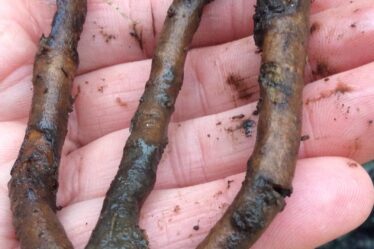
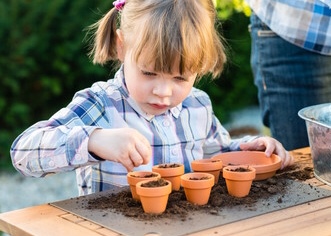
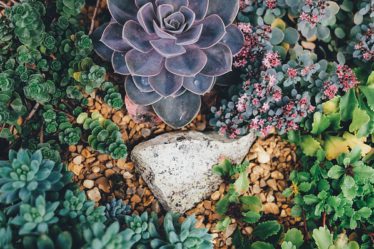

This is great Louise,
I have several composters and the compost I get is fantastic, I use it all over the garden and veg plot.
I have chickens too, so the chicken manure is used in the compost.
Probably what makes it so good.
Thank you
Alison
Hi Alison,
The chicken manure will definitely help to make great compost, nothing better.
Louise
I need to get some compost bins, I could definitely make use of them in my garden and it’s true that we need to stop the use of peat based composts.
After reading your blog I can see now how easy it is to make my own compost.
Thank you
Gill
Hi Gill,
If you have space for compost bins then there is nothing better for your garden than making your own compost.
Good Luck with your composting!
Louise
Hello,
I made a composter from a wooden pallet, it is very useful for adding all the waste from the garden and veg plot.
Having reading this article I now know what other waste I can add to it to make even better compost.
Thank you
Alan
Hi,
Always pleased to know that you have found something helpful from reading my blogs.
Thank you
Louise
Hello Louise
Thank you for this information.
I think I could find some space for a compost bin. It would be so much better than buying bags of compost.
And I will be sure that my homemade compost has only good things in it. Peat free!
Carol
Hello Carol,
Thank you for reading and commenting.
Yes, homemade compost ids definitely better for you, your garden and the environment.I can’t stress enough that we need to stop using peat.
I think you will have fun making it.
Happy Gardening
Louise
Thanks for this great article about making your own compost. When I was younger, I remember my dad was trying to make a compost heap, but I think he was doing it in the open and maybe it attracted a lot of animals and since then he doesn’t want to make a compost heap anymore.
It sounds like it’s important to know what to add and what not to add, and to keep it contained so it decomposes faster And is protected. I like animals, so I probably wouldn’t mind having an open compost heap, I will be happy that the animals enjoyed the food. Thanks for your expertise on gardening and have a great day.
Hello,
Happy to know that you enjoyed my compost article. I can understand your Dads worry about open compost heaps. They can attract animals and vermin, not only for the food but because they are warm, mice, rats, hedgehogs may nest in them. I have slowworms in mine which I love.
Thank you
Best Wishes
Louise
Hi, I have to admit that my composting efforts in the past have been . . . not good. Now that I have read this very easy to follow post I know of several areas where I went wrong and one of them is adding weeds that simply enjoy the environment and grow like crazy next growing season. I guess they take away all the goodness too.
We have a large space for growing fruit & veg a short walk from home and the earth is very sandy. The climate is also hot & dry (south of France) and often windy. We don’t like to use shop products of any description. Is there anything you might suggest that we could try? Thank you
Hi Steve,
There are lots you can do to improve your soil. Sandy soil dries out quickly and is low in nutrients so digging lots of organic matter, such as compost, well rotted horse manure, bark clippings etc will improve both the water retention and quality.
A good amount dug in each spring before planting will improve it no end.
Als o use a slow Release fertiliser, again in spring to give your plants a healthy start. A slow Release fertiliser will last longer and plants can take it as they require.
I’ve added a link from RHS which you may find useful, it has a comprehensive list of suitable plants too.
https://www.rhs.org.uk/advice/profile?pid=786
On the up side, Sandy Soil is easy to dig and work.
As for the compost, it’s not a good idea to put in perennial weeds, as you say a compost bin gives them perfect germination and growing conditions, however, Weed leaves can be left till they die once you get them up and then added to compost. But I admit I don’t add them at all. I tend to burn them.
Hope this answers your questions
Happy Gardening in France
Louise
Hi, this is a great post that has helped us know where we’ve being going wrong. I’ve left another comment at your site with a couple of questions on earth and composting. I think to date we sit somewhere at the bottom of the class so, the only way is up thanks to your helpful post. Thank you.
Hi Steve,
I’m pleased that you found the post helpful, composting isn’t difficult once you know the basic do and don’ts. Homemade compost is so beneficial to our gardens and plants it is worth persevering with it.
It is very satisfying to open a compost bin and see lovely rich, healthy compost.
Thankyou
Louise
Homemade compost is really effective and it’s actually the best of the multitude of types of compost we have. I’ve tried it and I can attest to the fact that it’s really good and it doesn’t require money. It’s advisable to make use of homemade compost because it’s friendly to human health and even to the environment and it provides natural nutrients for your garden. I’ve learned some other things about homemade compost from this article, thanks to you for sharing it.
Hi there,
I agree totally, it’s a win win.
Glad you enjoyed the article and found it useful.
Happy Compost=happy Plants
Louise